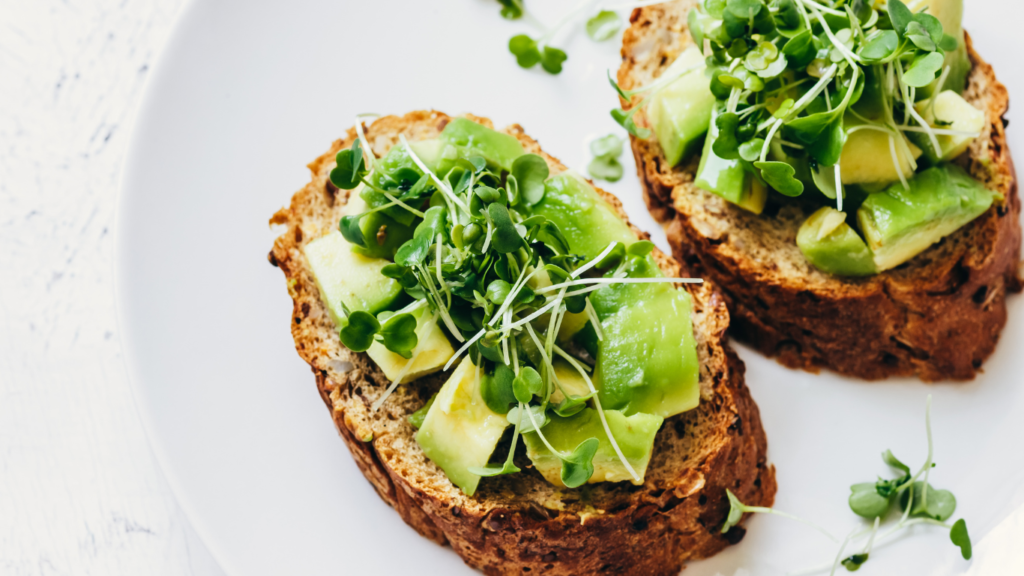
Why Is a Healthy Diet So Important in IBD?
A healthy diet can help relieve symptoms and reduce strain on the gut in people with IBD.
In this blog post, you’ll find essential tips and recommendations to adjust your nutrition to your personal needs when living with Crohn’s disease or ulcerative colitis.
14 Tips for Better Nutrition with IBD
1. Identify and Avoid Individual Intolerances
Everyone reacts differently to certain foods. Keeping a food diary can help you discover which foods you tolerate well and which ones worsen your symptoms. For example, many people with IBD develop lactose intolerance, especially during flare-ups.
2. The Benefits of a Mediterranean Diet for IBD
The Mediterranean diet is considered especially IBD-friendly. It focuses on plenty of vegetables, fruits, whole grains, legumes, nuts, and olive oil – with moderate amounts of fish and lean meat.
3. Eat Small, Regular Meals
Instead of large meals that strain digestion, spread your food intake over 5–6 smaller meals per day. This stabilizes blood sugar and is gentler on your gut.
4. Fiber: Which Types Are Good for the Gut?
Fiber is important for gut health, but not all types are suitable during IBD. Choose soluble fibers, found in oats, apples, and carrots – they’re gentler and support a healthy microbiome.
5. Avoid Artificial Sweeteners and Additives
Substances like aspartame, sucralose, emulsifiers, and thickeners can negatively impact gut health. Use natural alternatives like honey or maple syrup instead.
6. Choose Well-Tolerated Protein Sources
Protein is essential for cell regeneration and immune function. Include a mix of eggs, lean meats, fish, legumes, and dairy – or plant-based options if you follow a vegan diet. Focus on easily digestible forms.
7. Reduce Sugar and Unhealthy Fats
Excess sugar and trans fats can promote inflammation. Opt for healthy fats from nuts, seeds, and high-quality oils. Replace refined sugar with natural sweeteners where possible.
8. How Much Should You Drink Each Day?
Stay hydrated! Drinking enough water and unsweetened tea helps prevent constipation and keeps the gut moving. Avoid sugary drinks and carbonated beverages.
9. Prevent and Manage Nutrient Deficiencies
Malnutrition is common in IBD due to inflammation and reduced nutrient absorption. Pay special attention to vitamin B12, iron, zinc, calcium, and vitamin D. Supplement if needed and get regular blood tests to detect deficiencies early.
10. Gentle Cooking for Easier Digestion
Cook at low temperatures with minimal water and fat to preserve nutrients and support digestion. Avoid frying and highly spiced foods.
11. Avoid Heavily Processed Foods
Processed foods often contain additives that may worsen gut inflammation. Avoid fast food, ready meals, and packaged snacks. Instead, go for fresh, whole foods.
12. Use Relaxation Techniques to Support Digestion
Stress can worsen IBD symptoms. Techniques like yoga, meditation, or progressive muscle relaxation can help lower stress levels and support gut health.
👉 Read more in our blog post: Relaxation with IBD – The Best Stress Management Techniques
13. Flare vs. Remission – Adjusting Your Diet Accordingly
During a flare, the gut is inflamed and sensitive. Choose gentle, low-fiber foods. In remission, aim for variety and more fiber to support the gut.
During a flare:
- Easily digestible foods: white bread, rice, potatoes, bananas, steamed carrots or zucchini
- Lean meats and fish: chicken, turkey, white fish
- Avoid: raw veggies, whole grains, legumes, fried foods, spicy dishes, carbonated drinks, red/processed meat, and refined sugars
- Stay hydrated: water, clear broths, unsweetened teas
Coreway Tip: Baby food, low-fat chicken soup, and oatmeal with banana helped me personally!
During remission:
- Fiber-rich foods: whole grains, fruits, vegetables, legumes
- Healthy fats: nuts, seeds, olive oil
- Protein sources: fish, lean meats, eggs, fermented dairy
- Follow the guidelines of the German Nutrition Society (DGE)
14. Anti-Inflammatory Foods for IBD
Certain foods can help ease inflammation during both flares and remission:
- Psyllium husks: Regulate digestion and are rich in soluble fiber
- Turmeric: Contains curcumin – a natural anti-inflammatory compound
- Ginger: Supports digestion and may reduce inflammation
- Omega-3 fatty acids: Found in fatty fish, flaxseed, walnuts
- Leafy greens: Spinach and kale are packed with antioxidants
- Prebiotics & probiotics: Support gut flora and overall gut health
🔁 Everyone with IBD is different!
That’s why it’s important to tailor your diet to your personal needs and symptoms. Listen to your body, experiment mindfully, and consult a dietitian or your doctor when needed.
With the right food choices and conscious nutrition, you can not only reduce your symptoms – you can also improve your overall well-being.
Sources:
- DGE – German Nutrition Society
- Study: Nutrition & IBD (PMC)
- List of Anti-Inflammatory Foods (Healthline)
💪 Want to stay active with IBD too?
Check out our post: “Exercising with IBD: 12 Tips for an Active & Healthy Lifestyle”